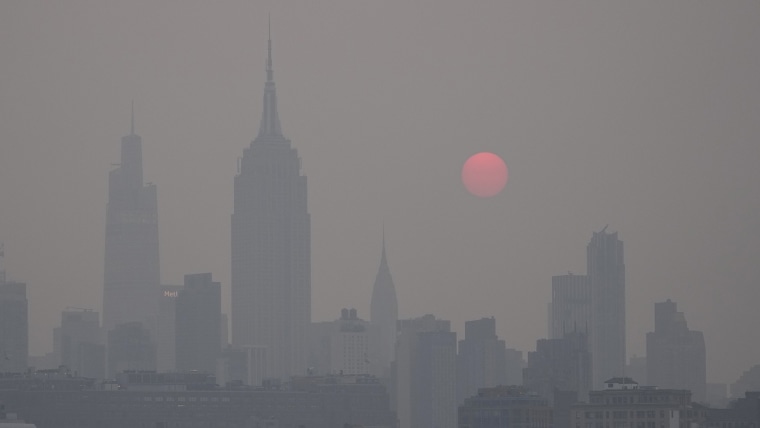“A quiet hurricane season is not mercy — it is the ocean holding its breath. And when it exhales, the storm that follows will remind us that one strike can undo a decade of denial.”
- Adaptation-Guide
The Dead Calm Before the Storm: Why 2025’s Hurricane Season Should Terrify You
So far, the so-called “peak” of this year’s Atlantic hurricane season has been—if you believe the armchair commentators on social media—a flop. By mid-September, the list of named storms was shockingly short.
Only one hurricane, Erin, briefly flared up in August before fizzling out and brushing past the coastlines like an afterthought. Add in a handful of tropical depressions and weak storms, and you get a season that—at least so far—looks tame compared to the apocalyptic imagery that usually floods our feeds.
And yet, here’s the paradox: the oceans are on fire.
Literally.
The North Atlantic and North Pacific have been running months-long marine heatwaves, shattering temperature anomaly records and baking ecosystems alive. “Nature Microbiology” just published evidence of mass die-offs among Prochlorococcus, one of Earth’s most abundant phytoplankton and oxygen generators. Coral reefs are sickening in silence. The seas are storing heat on a scale we can’t even model properly.
So why aren’t we already drowning under back-to-back Category 5 monsters?
The Climate Science Nobody Wants to Hear
Here’s the dirty secret of hurricane science: the relationship between climate change and tropical cyclones is not simple, not linear, and not headline-friendly.
Yes, hurricanes feed on heat and moisture from warm surface waters. And yes, the warmer the sea, the more fuel available. That should mean more hurricanes, stronger hurricanes, sooner and later in the year. But the atmosphere is a messy, multi-layered battlefield.
Right now, the upper atmosphere is heating faster than the lower layers. That reduces the vertical temperature gradient—the difference that drives air to rise. Sluggish air means sluggish storm formation. Add in disruptive vertical wind shear—crosswinds that slice storm embryos apart before they mature—and you get exactly what we’ve seen this year: a slow start, even with bathwater-warm seas.
Does that mean climate change is “helping” by suppressing hurricanes? Don’t be stupid.
What it means is this: climate change is shifting the rules of the game, not canceling it.
The Dangerous Complacency of a Quiet Season
When officials predicted an “above average” season back in May—13 to 19 named storms, at least 6 to 10 hurricanes—they weren’t fearmongering. They were looking at sea-surface temperatures and doing the math. And they were right to be concerned.
The fact that Gabrielle, a weak Atlantic storm, is only the seventh named system of the year doesn’t mean the crisis has vanished. It means we’re being lulled into false security.
Hurricane season doesn’t officially end until November. And if you’ve been paying attention to the weird new climate calendar, you know damn well it’s only a matter of time before December—or even January—produces a hurricane that smashes into Miami or New York and rewrites the rulebook.
It only takes one storm, one high tide, one Category 5 landfall to cause damage so catastrophic that the “quiet” months won’t matter.
Let’s be blunt: so far, not even Nature wants to set foot in the United States this year. But that’s not a blessing—it’s the silence before the orchestra strikes.
The Research Gap That Could Kill Us
Here’s what should really scare you: despite the existential threat hurricanes pose to densely populated coastlines, our research is decades behind where it should be.
We’ve only had consistent satellite data on tropical cyclones since the 1980s. Our climate models can barely resolve storm-scale processes without burning supercomputer time we don’t want to spend. Data gaps are massive. And the scientific messaging remains cautious to the point of paralysis:
-
Andreas Fink of KIT warns against “prematurely attributing” individual storms to climate change.
-
Peter Pfleiderer of the University of Leipzig explains that while the total number of storms may stagnate or even decline, the storms that do form will find better conditions to intensify explosively.
Translation? We may get fewer storms, but they’ll be stronger, deadlier, and more destructive when they do hit.
This isn’t reassurance. This is a threat disguised as nuance.
The Lesson Nobody Wants to Learn
2025’s “quiet” hurricane season is not a reprieve. It’s a misinterpretation, a dangerous lull that exposes how poorly we understand the climate chaos we’ve unleashed.
When the Atlantic looks dead while the oceans boil, it isn’t safety. It’s the pause before the system finds a new equilibrium—and slams us with storms we cannot prepare for.
The global climate crisis is not predictable, linear, or polite. It will deliver surprises, contradictions, and shocks that defy your Twitter hot takes and your politician’s soundbites.
And when it does, the lesson will be cruel:
You only need one storm, and you’ll wish the season had stayed a flop.
👉 So let’s stop pretending that fewer storms equals good news. The seas are hotter than ever, the atmosphere is tilting toward chaos, and the quiet of September doesn’t mean salvation. It means December could be the month America finally gets wrecked.
Because in this new climate, there’s no such thing as an off-season.
Further reading (authoritative links to include at bottom)
-
NOAA seasonal outlook & updates. NOAA+1
-
National Hurricane Center (advisories & tracks). National Hurricane Center
-
Nature Microbiology paper on Prochlorococcus (2025). PubMed
-
Copernicus / ECMWF sea surface temperature anomaly resources and charts. ECMWF
-
Colorado State Univ. hurricane forecast brief (technical PDF). tropical.colostate.edu


No comments:
Post a Comment